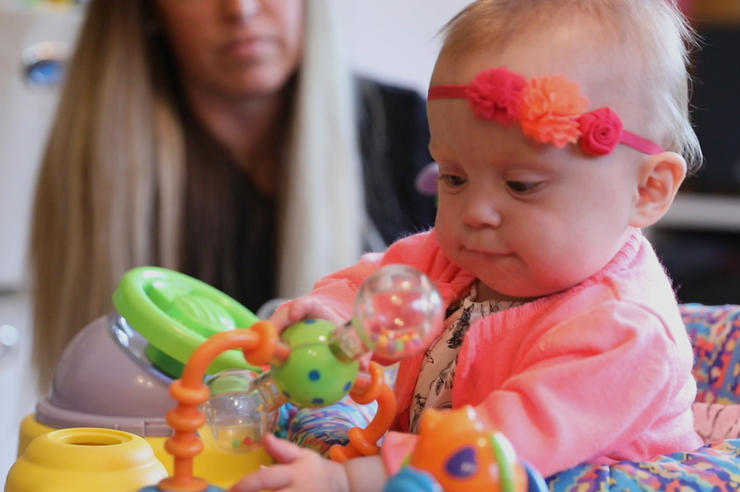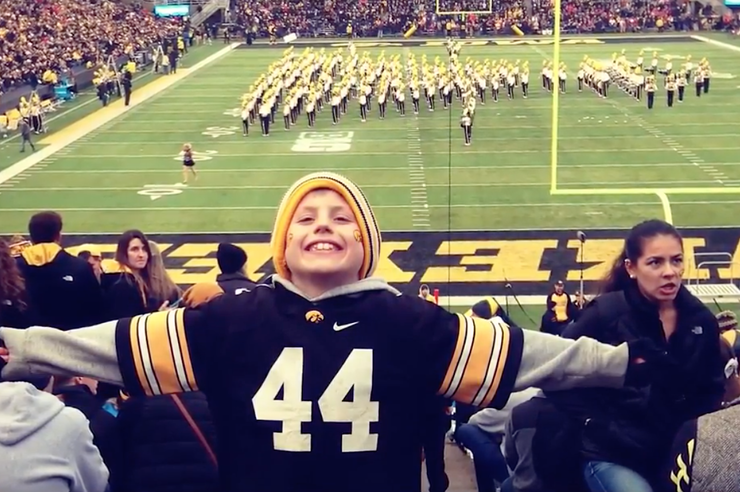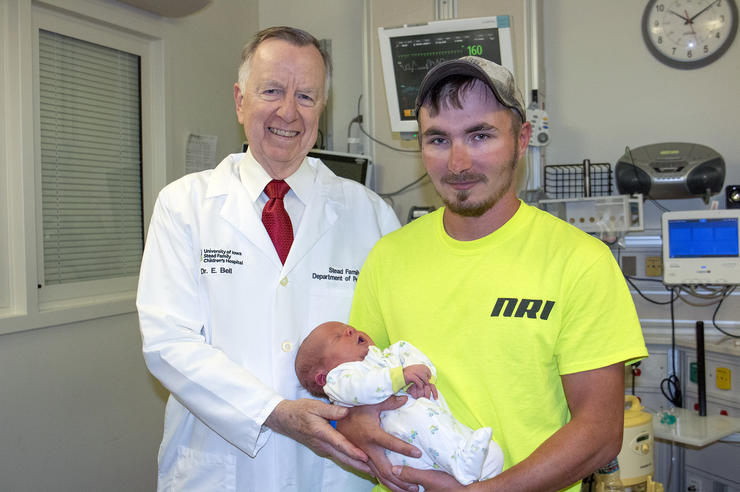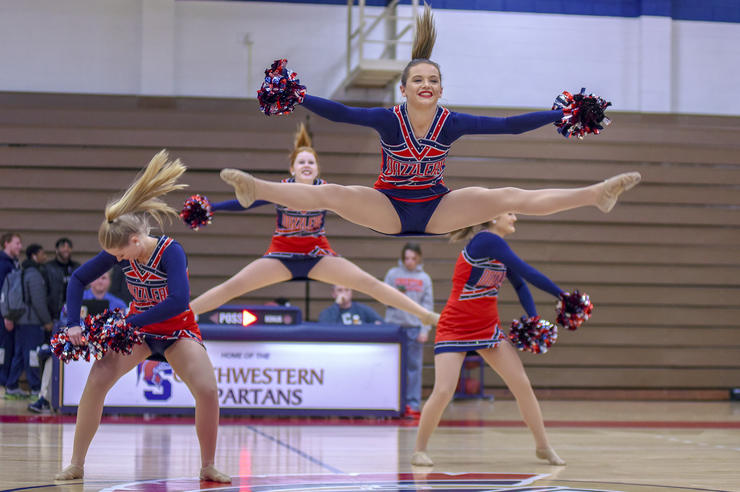The right calls for Kid Captain Cooper
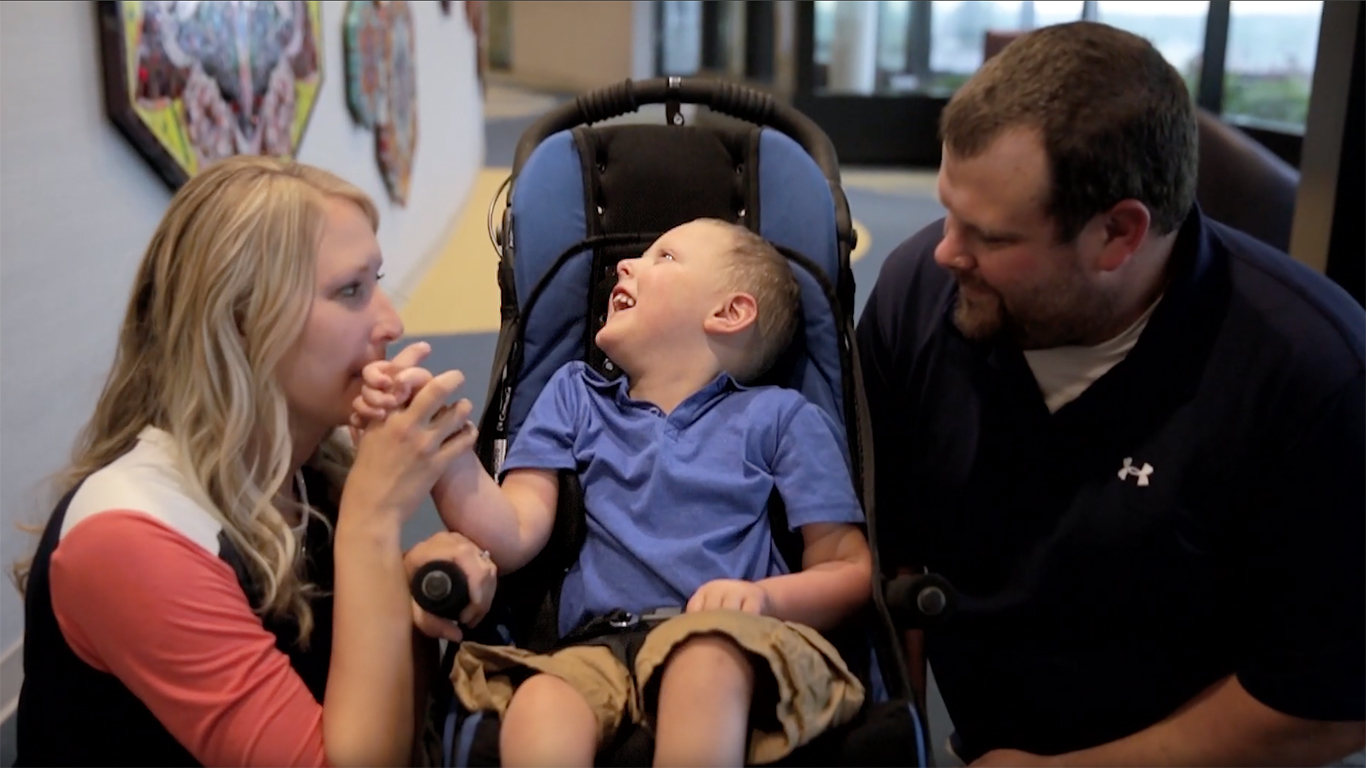
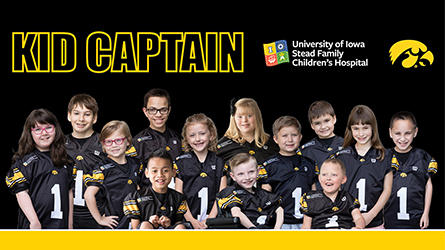
Thirteen current and former University of Iowa Stead Family Children’s Hospital patients geared up to be members of the 2019 Kid Captain team. The 2019 Kid Captains were selected from 241 nominations from five states.
Cooper Leeman was a healthy 14-month-old when he experienced breathing difficulties and started vomiting frequently. His condition worsened, and his local hospital diagnosed him with dilated cardiomyopathy, a disease in which the heart does not pump blood adequately.
When his heart function continued to decline, Cooper was transferred to University of Iowa Stead Family Children’s Hospital, where he was placed on the heart transplant list.
“Dilated cardiomyopathy is when the heart is too large for the body, and it doesn’t work properly,” explains Cooper’s mom, Laurel. “It affects his breathing and his energy, his appetite, just his whole body system. Their capabilities [at our local hospital] were beyond them, and they knew that we needed the experts at the University of Iowa.”
While he waited for a new heart, Cooper had a stroke during a heart procedure.
“He had stopped breathing, and they had to do five minutes of CPR,” Laurel recalls. “He got some medications to help, and his heart was able to restart on its own.”
The stroke, however, left Cooper with cerebral palsy and seizures.
“Initially, he was a walking, talking, normal healthy 14-month-old, with a vocabulary,” Laurel says. “He basically regressed back to a newborn. He wasn’t smiling, he had zero facial expressions.”
His swallowing and vision also were affected. Since then, Cooper’s mother says, “his brain is just having to rewire itself.”
Cooper had been on the heart transplant list for two years, when a test in January 2017 revealed that his heart function had inexplicably improved.
Laurel recalls receiving the news from his pediatric cardiologist.
“He said, ‘I have no reason why, except, between the medication, the heart just reformed itself and his body grew into it,’” she says. “When they told us that he didn’t need a heart transplant, it was a lot to process.”
“We trust his team. I can’t even count how many specialists he has, and to have them all in one facility is just awesome. We truly believe without them and their expertise and willingness to work and look outside of the box, we would not have Cooper today.”
Cooper’s care team has consistently kept the family informed, his dad, Brandon, adds.
“When they told us everything that was wrong with him, it was quite a rush of information,” Brandon recalls. “They just did a really good job expressing their concerns and always having time to listen to our concerns.”
Although he was taken off the transplant list, Cooper still had health issues.
“Shortly after his echocardiogram came back normal, we were referred to ENT [ear, nose, and throat] because we noticed his sleeping wasn’t great, and he just seemed to be really tired,” Laurel remembers.
His tonsils and adenoids were removed, but after surgery, Cooper had breathing difficulties when his lungs collapsed. An advanced form of life support called extracorporeal membrane oxygenation (ECMO) was used to pump and oxygenate Cooper’s blood outside his body, allowing his heart and lungs to rest.
While his heart improved, he was on lung support for 30 more days before another decision had to be made.
“We talked about end-of-life care,” Laurel says. “They said that we have one last option, and that was to use surfactant.” Surfactant is a liquid made by the lungs that keep the airways open. “They believe [after his operation] that he had a pulmonary edema, and it flushed all the surfactant out of his lungs. So his lungs were just sticking to each other like glue.”
Typically, surfactant is used with premature infants. Because Cooper was 4, he required a higher dose, which almost exhausted the hospital’s supply, causing his doctor to lobby for more.
“We trust his team. I can’t even count how many specialists he has, and to have them all in one facility is just awesome. We truly believe without them and their expertise and willingness to work and look outside of the box, we would not have Cooper today,” explains Laurel.
Today, Cooper loves to laugh and enjoys school.
“Cooper’s taught me to never give up,” Brandon says. “Even if all the things that could be going against you, if you keep fighting, it’ll turn around.”

